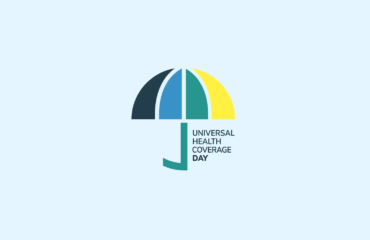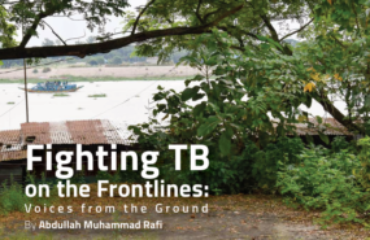My personal view is that there are still many myths that we have to overcome, the biggest one being that TB cannot be cured. This is simply not true: TB is 100% curable, and each and every one of us can have free treatment if we go to any of the NTP clinics for diagnosis and treatment.
If you work in a factory that is part of the Bangladesh Garment Manufacturers and Exporters Association (BGMEA), then their doctor or paramedic can test you for free, without you losing your pay or having to stop work for treatment. However, not all factories are part of BGMEA, and we at ARK Foundation know the challenges of trying to persuade employers to invest in diagnosis and treatment for their staff.
When we conducted research, with the help of the BGMEA factories, we found that factory managers were reluctant to allow workers to visit TB diagnosis centres during working hours, and also reluctant to allow their staff to continue working once they were diagnosed with TB. In some factories, even the workers were uncomfortable accepting their colleagues back into the workplace.
We also found that some medical staff based in the factories thought that keeping up-to-date treatment records was time-consuming, and factories without medical facilities struggled to organise the referral mechanism that we were proposing, and struggled to maintain records.
All these challenges still exist, and do not help the cause of fighting TB. What did we do to tackle these challenges? We held orientation and educational activities for a large number of workers to challenge the stigma and myths surrounding TB. Most importantly, we gave them information on how they can get free diagnosis and treatment, and we persuaded factory managers that it was in their best interests (and ultimately more profitable) if they didn’t sack workers who were diagnosed with TB, but instead let them continue treatment while working for them.
Our project had a 100% success rate; everyone who worked in the BGMEA factories who was diagnosed with TB went on to complete their treatment and is 100% cured.
So what can we take away from this? My view is that providing workplace TB control depends on the management’s good understanding of what it takes to control TB in the workplace. Management also need to commit to allowing workers diagnosed with TB to continue to work in their factories and visit diagnosis centres during working hours.
Our experience of working with BGMEA factories can easily be replicated in other business sectors. However, national policies and funds should be mobilised to provide encouragement and support. Armed with this evidence, the NTP is in a strong position to initiate relationships with trade associations to help the workers and managers of Bangladesh control TB.



